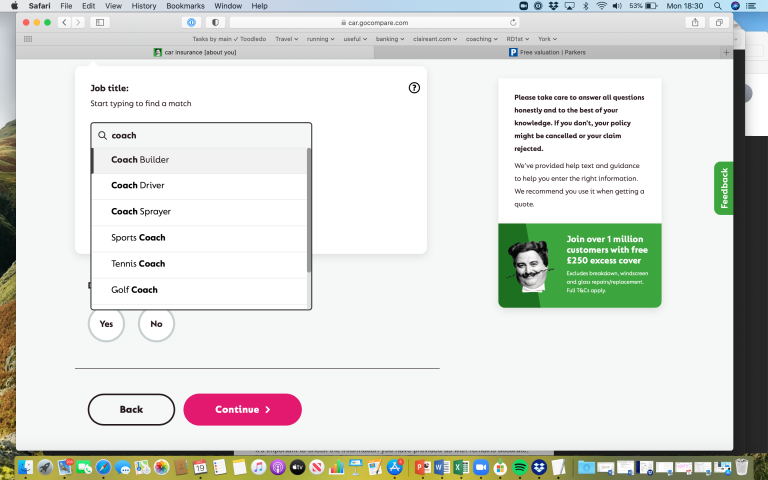Fairly regularly I find myself explaining what coach is – and isn’t – as many of the people I work with are new to coaching and it’s a term that’s often misunderstood and even elicits a negative response in some – hence me jokingly referring to coaching as the ‘c-word’ at times.
I like to describe coaching as ‘thinking space’ or ‘time to think aloud’ because both of these phrases capture the self-directed or coachee-led essence of the process; it’s your agenda, your ideas that we focus on, I am there to facilitate your thinking through actively listening and asking questions that offer you insights.
A coach also brings challenge to the process; too often we limit our thinking by making assumptions about ourselves or others and as a coach I help you notice any limiting beliefs that might be narrowing your perspective or restricting the range of options ahead. The coach is by your side, inviting you to be deeply honest about what you individually want to achieve or change; reminding you of what’s important to you; inviting you to be courageous in your thinking. How would you love it to be? What if there were no limits?
Slightly stretching my point about c-words, coaching can be enCouraging. We perform better with stretch andsupport – there is a coach at my running club who cleverly positions himself on the corner of the home straight of the track and when I’m flagging and shouts encouragement for the final push; I know he’ll be there and will notice if I’m easing off so I grit my teeth and dig in… Equally, a good coach is encouraging because they have confidence in your ability to achieve your goals – if you’re willing to put the work in. So thinking about a coach I work with myself, when I recently told her a very ambitious running goal I’ve set myself her response was: ‘great, let’s talk about how you’re going to build up your strength and endurance to achieve that’.
Clarity in itself can sometimes feel challenging and it’s a favourite tool in my toolbox as a coach. What does ‘better’ look like to you? How will you know you’ve been successful? What will you see or hear when you’ve achieved your goal? Eliciting a very specific and measurable goal generates not just clarity but excitement and momentum.
At the heart of coaching is the process of finding your own solutions – developing your problem-solving capacity and confidence in your own abilities or judgment. When you discover your own solutions you’re also more likely to be committed to them than if someone else has told you how to achieve your goals. Also given the complexity of the challenges we’re often exploring in coaching, and premised on the belief that you are expert in your own life/ situation, then the solutions you generate for yourself are more likely to work for you, than the ones that may have worked for me or others.
Another key aspect of coaching is that it is constructive. Your coach helps you focus on what you can do, to take responsibility for your choices rather than blame others or circumstances.
Finally, and very importantly, coaching is capacity-building – as a coach I support people to learn how to coach themselves better, to generate fresh insights and ways of seeing that don’t just solve the problem immediately in front of them, but which also continue to be useful long after a coaching conversation.

